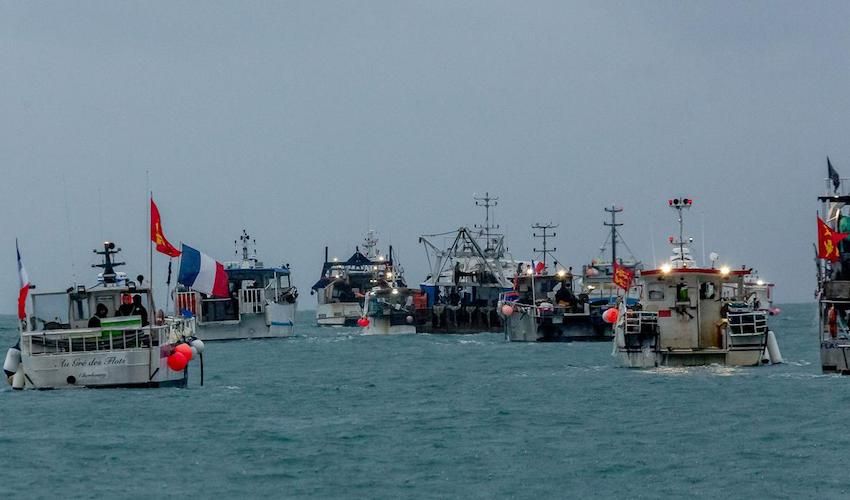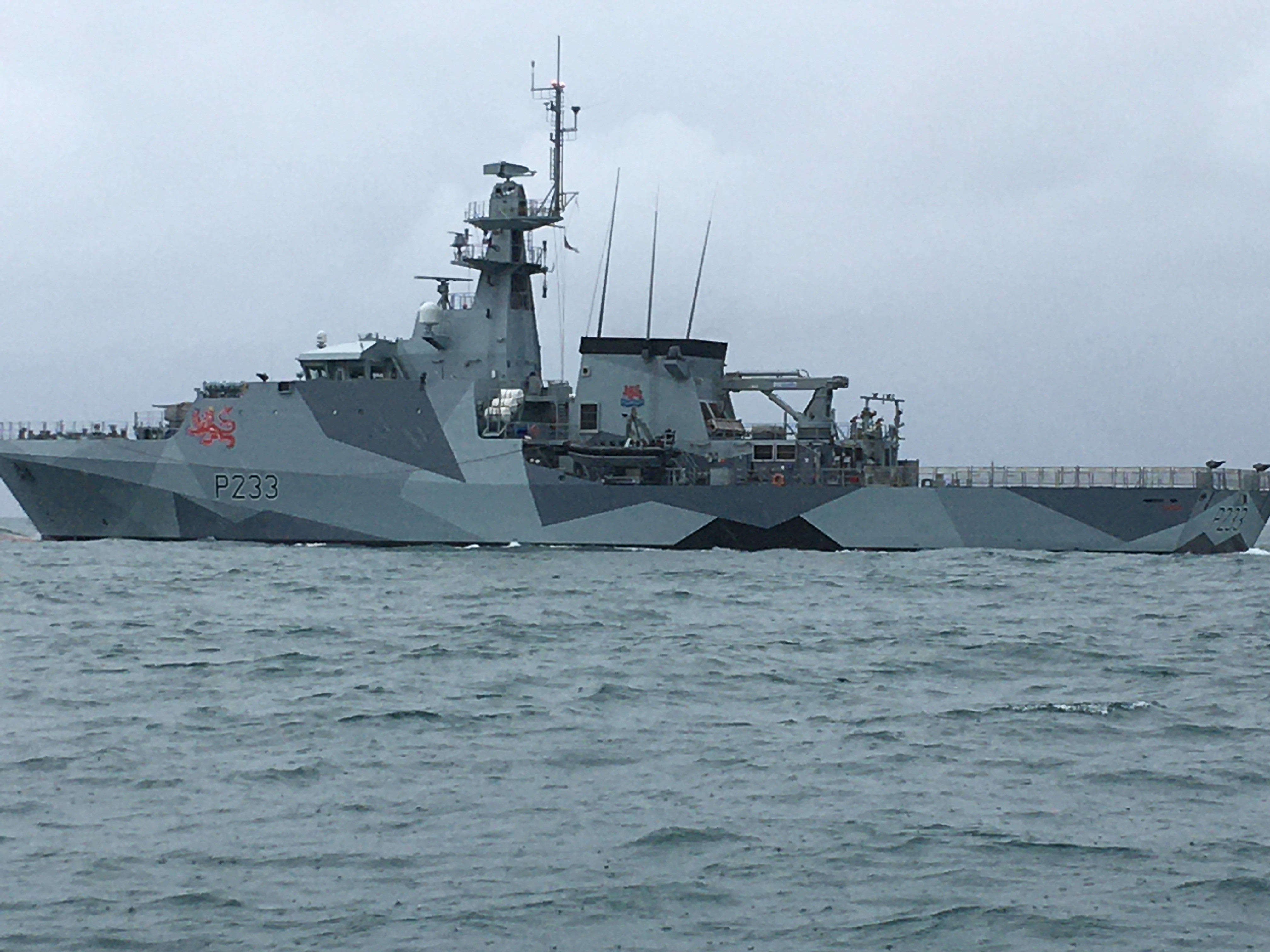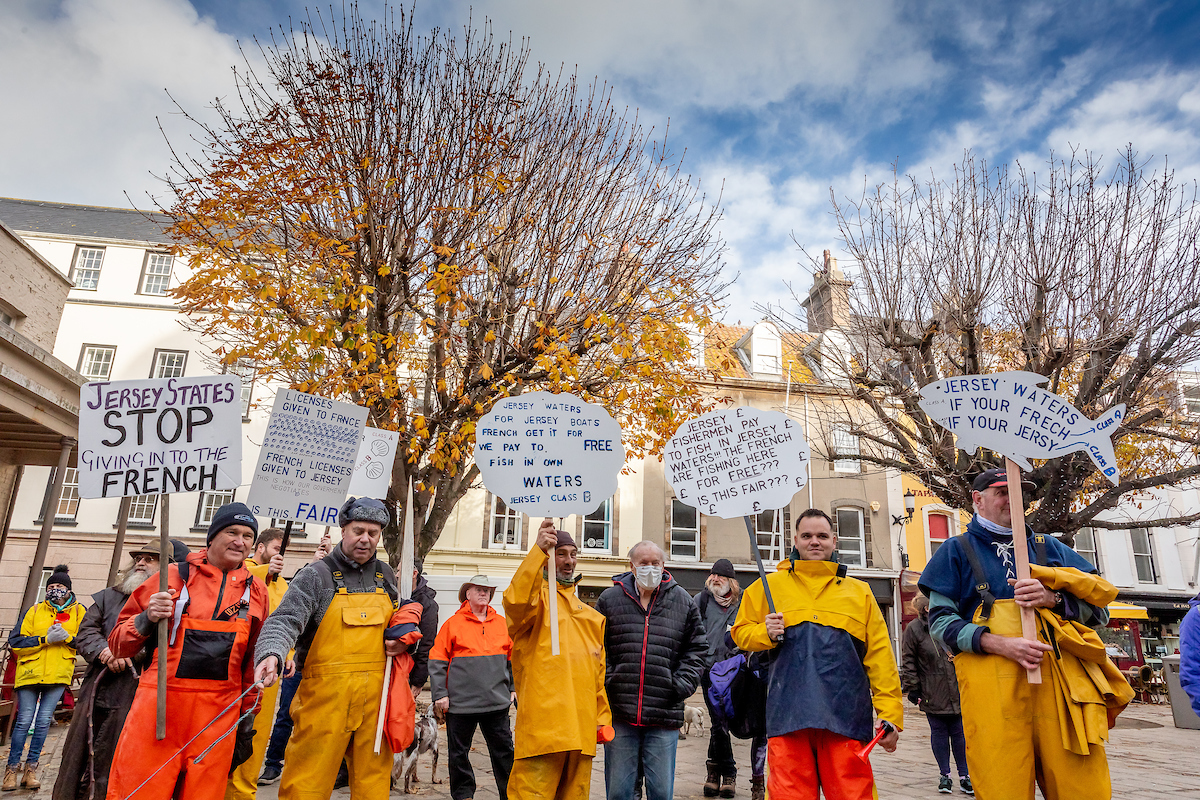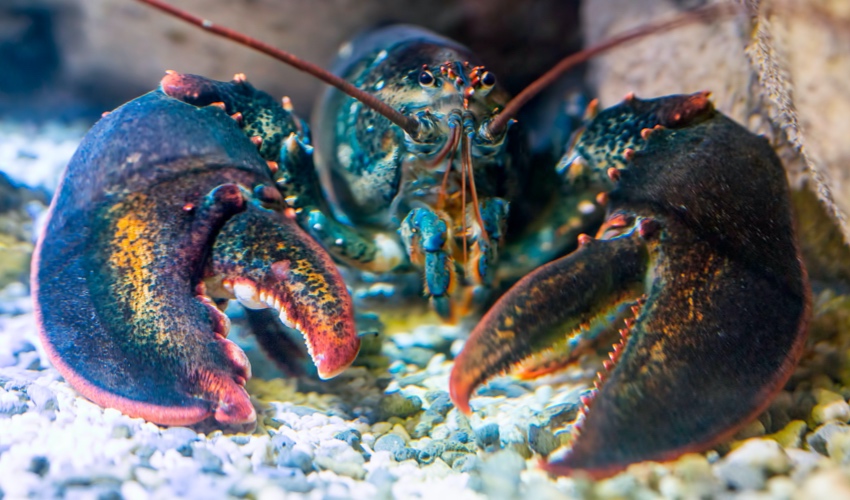


A year ago today, Jersey made headlines across the globe, from the Washington Post to the Hindustan Times.
Suddenly, the island became a focal point for the sort of post-Brexit tensions that tabloid editors in London had been sharpening their pencils for.
Even Boris Johnson may have been itching for this day, as he dispatched warships to the island with promises of steadfast support on the eve of local elections.
Perhaps it was unsurprising that Jersey became the first cause célèbre of EU-UK tensions after 1 January 2021. Not only is it the closest part of the British Isles to France but Jersey and its near-neighbour had shared the island’s waters for centuries and jointly managed its fish stocks for 20 years.
Overnight, with the UK’s departure from the EU, that agreement was ripped up, yet few people - least of all Norman and Breton fishermen - appreciated the significance and implications of that political severance.

Pictured: HMS Tamar, along with HMS Severn, were dispatched to Jersey to monitor events on the morning of Thursday 6 May 2021.
And when Jersey started to implement the terms of the Brexit deal that the EU and UK had agreed in late January 2020 - by issuing licences with conditions attached - those same fishers were thrown into Gallic apoplexy.
Even if most islanders weren’t around the Harbour early on 6 May to see scores of tiny lights off the south-east coast grow into flag-flying, flare-waving trawlers, they would have seen, heard and read the extensive media reports afterwards.
And they would have certainly heard of French threats to cut off the island’s electricity supply.
Pictured: Around 70 French fishing boats protested in and around the Harbour.
The situation was tense, with no idea of the other side’s intentions. Even gunfire was heard, which turned out to be a rather over-enthusiastic musketeer on Elizabeth Castle.
Eventually, gunboat diplomacy made way for an impromptu summit between French fishermen and Government representatives on board the Normandy Trader, Jersey’s equivalent of Oslo or the Vatican.
There are too many twists and turns in the tale to go into too much detail here, but the outcome of that bizarre, tense - but ultimately peaceful - May morning was that Jersey suspended its licensing effort to give time for the French to work out what they needed to do to comply.
After months of negotiations and hard-talk mixed with lashings of hubris and hyperbole, the fishing dispute rumbles on but it has not made the headlines for some time.
Clearly other events have demanded the attention of political leaders but where are we now, 12 months on? Have the matters that made front pages and TV and radio bulletins around the world now been resolved?
There has been progress, but there is still a lot to do, according to External Relations Minister Ian Gorst.
“Overall, the fishing situation is more stable, and we have now issued licences to all boats that meet the criteria set in the trade agreement,” he said.
“The French are still undertaking their legal review but the EU Commission has agreed that the position is firmer and the relationship should be moving forwards."
He added: “There are ongoing conversations about ‘nature and extent’ and whoever is the new External Relations Minister will have to pick up on that. Also, we don’t know who the new French fisheries minister will be; President Macron is due to announce his Prime Minister and cabinet in the coming days. It could be the current chair of the EU Parliament Committee on Fisheries [Pierre Karleskind].
“So, as we speak, things are more settled but there is still work to do.”
Back last September, it was the same Pierre Karleskind who suggested that France stops buying fish from Jersey and reiterated the threat to cut off electricity to the island.
While the vast majority of French boats that fished around Jersey before Brexit now have a licence to fish in the island’s territorial waters, there have been no conditions - what is referred to as the ‘nature and extent’ of what, where and when they can fish - attached, as yet.
That is a key outstanding issue and remains a major concern for local fishers.
Jersey Fishermen’s Association President Don Thompson said: “Things have not moved on to the extent that we expected and there is still a long way to go to achieve ‘nature and extent’ on the licences.
“The French have access to our waters but there is not a lot of control of what they are doing, and we are seeing unfortunate interactions between boats using mobile and fixed gear, and our fishermen have lost thousands of pounds worth of equipment.
“We are trying to put a framework in place to define what gear can be used, where and when, to support metiers on a seasonal basis.”

Pictured: Jersey fishers held a protest in October about what they see as unfairness in the relationship between Jersey and the EU.
Mr Thompson said that Jersey fishermen continued to try to engage with their French counterparts in Brittany and Normandy but the danger of political interference on the French side was still there.
Also, he added, that some fishermen still appeared to think that Jersey’s waters were jointly managed, as they had been under the Bay of Granville Agreement, but that arrangement was no longer in place.
“Those days are gone and we now have the authority to manage our own waters, which we will do under the terms of the trade agreement,” he said.
Meanwhile, a Border Inspection Post is still not up and running in Granville, despite the port and regional leaders being keen for that to happen. If it did, Jersey fishers and shellfish exporters could land their catch in the Norman port, which is far easier to get to and land produce than St Malo.
Recently, London announced that it was delaying the introduction of UK border posts for the fourth time.
Physical checks on fresh food and plants from the EU were due to begin in July but have been pushed back to the end of 2023.
However, the EU introduced checks on goods arriving from the UK and Jersey immediately after Brexit.
The EU classification of Jersey’s waters is also yet to be resolved, with the catch of French fishers - working in exactly the same waters as their Jersey counterparts - being treated more favourably because their produce is deemed to have been caught in better quality water.
While the politics and diplomacy rumble on, some stocks in Jersey’s waters are being perilously depleted, including brown crab, lobster and whelks.

Pictured: Stocks of lobster are perilously low, according to the Jersey Fishermen's Association.
Jersey fishermen argue that without conditions being soon placed on all boats, there won’t be a fishery worth fighting over.
Mr Thompson said: “To the public, it might seem that the dust has settled but we still have a long way to go to properly protect our waters.”
He added that one important step the Government should take is to create a Minister for Fisheries.
“There is so much work to be done, it is too much for a minister who is also responsible for planning and other matters. Yes, we don’t have French boats protesting in the Harbour these days but the matter hasn’t gone away.”
Comments
Comments on this story express the views of the commentator only, not Bailiwick Publishing. We are unable to guarantee the accuracy of any of those comments.